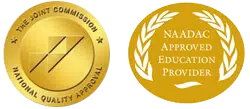Approximately 21.2 million Americans suffer from an addiction. And addiction doesn’t discriminate – it can impact any person from any social, economic, cultural, or religious background. The good news is that addiction is highly treatable, especially if a person gets professional help and learns the skills to thrive post-addiction.
Addiction recovery is a lifelong journey. Staying engaged in a sober life takes dedication and skill, as you’ll have to navigate through temptation in the “real world.” Luckily, addiction recovery programs know this and give their patients the tools they need to develop life skills they can use outside rehab.
Here are the four essential life skills you’ll learn in addiction recovery:
1. Routine & Time-Management Skills
Often, when someone is in the throes of an addiction, their life can be chaotic and unstructured. When your main priority is feeding your substance abuse needs, a routine can be challenging to stick to.
A large part of addiction recovery aims at helping patients get back into a routine. A structured routine helps people feel like they have a purpose. In contrast, having no routine can lead to people feeling bored, which allows for feelings of temptation to creep in.
Rehabilitation facilities help introduce structure back into your life by encouraging you to wake up and go to bed at the same time every day, attending regular meetings and activities, and eating three meals a day. Learning this type of time management will be crucial to maintaining sobriety once you leave rehab.
2. Self-care
A person struggling with an active addiction isn’t taking proper care of themselves. Addiction takes over, and tasks like eating, showering, and grooming are forgotten.
However, taking care of yourself is vital to feeling like you’re flourishing in your sobriety.
An addiction recovery program teaches you how to care for yourself mentally and physically. You’ll go to therapy so that you can stay mentally healthy. And you’ll learn how to prioritize your physical health again with regular showers, nutritious meals, and frequent exercise.
3. Social Skills
Many people rely heavily on drugs or alcohol to help them feel comfortable in social settings. So, when substances are removed as an option, interacting with other people can suddenly feel very strange and challenging.
Luckily, addiction treatment programs offer a lot of social practice. You get to learn how to socialize in a sober environment, and you might leave rehab with a few friends who have been through similar struggles.
Learning to be social while sober will be a key part of your life, and you get to start working on this skill immediately in recovery.
4. Decision Making & Problem-Solving Skills
You’re probably very aware that once you leave addiction recovery, you’ll be faced with temptation in your everyday life. A big part of sober living is avoiding temptation, recognizing your triggers, and spotting the early warning signs of a potential relapse.
All of this comes down to making good decisions and being a good problem solver. You know you’ll face situations that will make you reconsider your sobriety, but you’ll need the skills to see that temptation and quickly figure out how to leave or say no.
A significant focus of rehab is identifying your addiction triggers and learning coping mechanisms to avoid and disengage with those triggers in the future. This all comes down to learning strong decision-making and problem-solving skills.
Addiction Recovery at Baystate Recovery Center
Baystate Recovery Center is a clinically infused 12-step treatment center for drug and alcohol addiction. You can feel comfortable knowing that Baystate will go beyond addiction recovery and will teach you the life skills you’ll need to thrive in sobriety.
Don’t delay your new life any longer. Get the help you need by contacting us today.
Baystate Recovery Center, a clinically Infused 12-Step Treatment Center for Drug and Alcohol Addiction, was founded by two partners in addiction treatment services, John Checchi and Michael Wilson.



